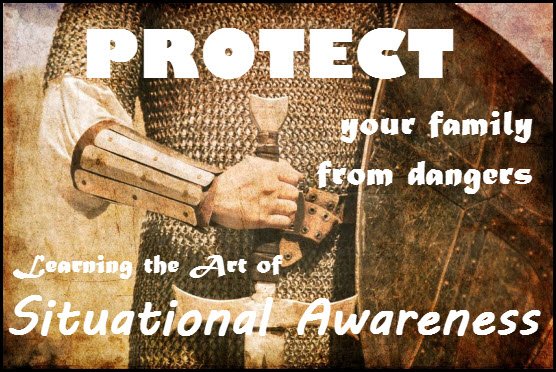Activity
Mon
Wed
Fri
Sun
Jan
Feb
Mar
Apr
May
Jun
Jul
Aug
Sep
Oct
Nov
Dec
What is this?
Less
More
Memberships
The Vigilant Family
34 members • Free
Scale Your Coaching
20.9k members • Free
6 contributions to The Vigilant Family
Rebel?
One of our group sent this to us and asked what we thought. Before we answer, we'd really like to hear what you guys think. Post your comments, questions, reactions, and we'll cover this in the upcoming days. S&J

Quick Tips!
Watch the hands, not the eyes. Danger is revealed in movements more than words. What's your best tip for staying safe?

School Shootings & What Can Be Done - Part 2
This is Part-2 on the Georgia school shooting series where we will discuss what we can do to prevent the next one from happening. On September 4, 2024, a mass shooting occurred at Apalachee High School near Winder, Georgia. The suspect, 14-years old, allegedly shot 13 people. Two students and two teachers were killed, while nine others were injured. We've already discussed some of the questions that should be asked and answered when one of these incidents happen. But, what can be done before the next one occurs to prevent the trauma and loss of life and to prevent the need put more guns in the schools? A significant number of the murderers who commit these crimes have been reported to the police, FBI, DOJ, and so on, all of whom have failed to either recognize or marginalized the the threat to the point where little or nothing was done. The current system has been a failure. What can be done to fix the protocols to increase the chances of stopping the next tragedy? We believe that there is a solution. What if law enforcement agencies approached these calls from a different perspective? What if they used a team response to prevent the murders and get the potential murderer the help they need before they cross that line? What would that look like? How could that happen? Part of the problem is that there is no standard procedure for handling these types of calls, leaving a patchwork of responses coupled that with a lack of communications within the individual departments, schools, the community, and state and federal law enforcement. We suggest a standard set of procedures that law enforcement can put in place on a national level and a team response to these and all mental health calls for service. There should be at least one officer (preferably two) who is trained and assigned to investigate and respond to these types of calls. This officer should be partnered with a board certified mental health professional who specializes in the field, is employed by department, and responds with the officer to evaluate the person in question. Most people can "hide their crazy" for the 10-15 minutes during a normal contact with police. Having an officer who is trained to recognize certain behaviors increases the odds that abnormal/violent tendencies will be detected earlier. But, if a skilled psychiatrist is on scene conducting and directing the interview, they can reduce that time significantly. Based on their initial contact there may or may not be a need for further action.

When Leadership Fails in Crisis
By now you’ve probably heard about the mass shooting at the Catholic school in Minnesota. The details of the murders themselves follow a familiar pattern—and we’ll save that discussion for another day. What struck us was a video from inside the church during the evacuation. It shows the chaos as children and adults ran for their lives before police ever arrived. Two men appear in that footage. One held the door. Another filmed on his phone. That was it. And if you watch closely, you’ll notice something heartbreaking: the children running past them looked up—searching for direction, for leadership, for safety. What they got instead was silence. A man with a phone. A man holding a door. Neither stepping up. Neither taking responsibility. Neither leading. These weren’t strangers on the street. These were men in their own parish. Presumably “Men of faith.” Men who, in that moment, had no plan, no presence, and no ability to guide the flock in front of them. To top it off, one of them decided it was worth releasing the footage for the rest of the world to see. What This Reveals: We don’t just need men in our churches, schools, and workplaces. We need men of strength and clarity. Men who are prepared physically, mentally, and spiritually to lead their families—and anyone in their care—to safety when danger strikes. Holding a door isn’t leadership. Filming chaos isn’t protection. Our families deserve better. Questions for You and Your Family: - When you entrust your kids to a school, a church, or even a workplace—what do you expect of the adults around them? - Do you assume someone will rise to the occasion… or do you know who actually can? - If the unthinkable happened in your presence, would your children, your spouse, your community look at you—and find strength? At The Vigilant Family, we ask the hard questions because ignoring them leaves people vulnerable. Are you equipped? Are you prepared? Or are you just hoping someone else will be? Because hope is not a strategy.

Everyday Convenience or Everyday Risk?
How Normal Moments Can Quietly Endanger You Family's Safety - And What to Do Instead: We recently witnessed a moment that’s been quietly bothering us. We were in line at a local store behind a young woman. When it was her turn at the register, the clerk asked for her rewards number. She gave her phone number out loud. The clerk responded with her name — “Sarah?” — and casually confirmed her street: “Still on 7th Ave in X-City?” She said yes. Sarah completed her transaction and walked out to her vehicle, a newer white Escalade, Lic. 123XYZ. In less than five minutes, we knew her name, phone number, street she lived on, vehicle make and model, and even her license plate. This wasn’t some elaborate sting operation. It was just... a normal Tuesday. Think about how often this happens — not just to you, but around you. How many times have you given your phone number or email at checkout for a rewards program? Has the clerk confirmed your name? Address? Birthday? To most people, this feels routine — even harmless. But as Vigilant Families, we need to be aware of how our routines are affecting our families safety and how we can reduce the chances of something bad happening to us. Let’s Be Honest: Would You Ever... …walk up to a total stranger and hand them your full name, phone number, home address, and vehicle description? Of course not. But when this same information gets shared casually in public settings — at the checkout, over the phone, or online — the risk becomes invisible, normalized. And while most people around you are decent and distracted, a predator only needs one moment of opportunity. A “Bad Guy” has one job, to be a good at victimizing innocent people, and they are always working. A career criminal sees patterns others miss. They don’t look like villains. They don’t wait for “ideal” conditions. They observe, collect, and act — all while blending in. That young woman didn’t do anything wrong. But she was unknowingly exposed — by a system that prizes convenience over caution, and by a culture that tells us not worry, everything will be fine.

1-6 of 6


